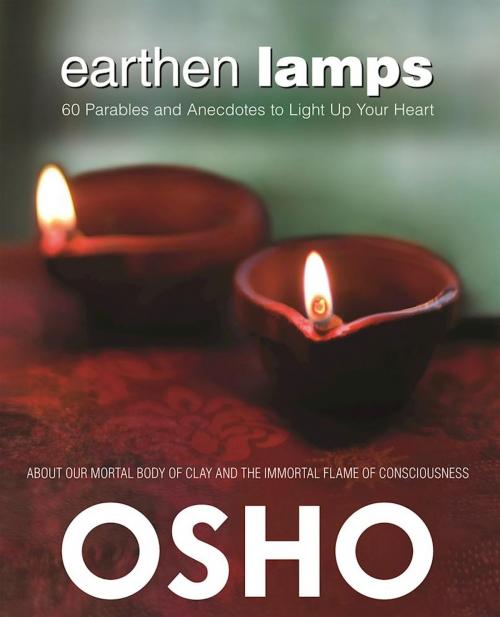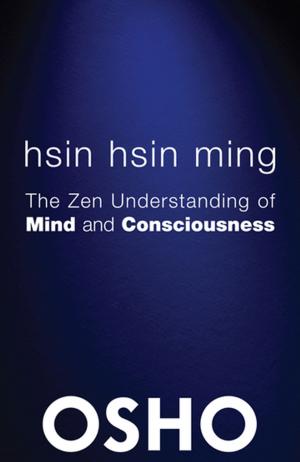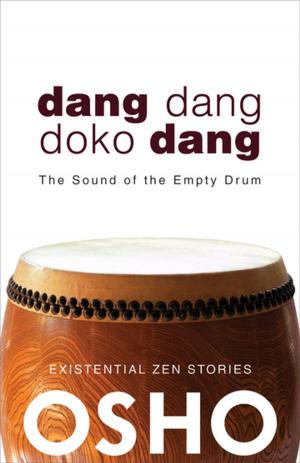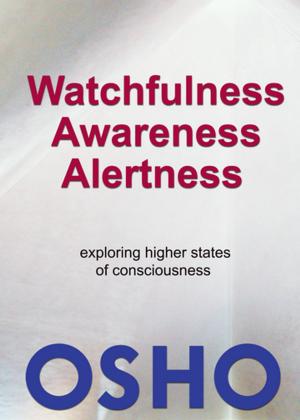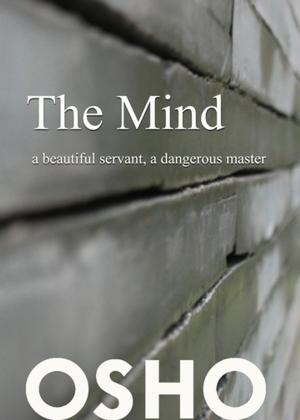Earthen Lamps
60 Parables and Anecdotes to Light Up Your Heart
Nonfiction, Religion & Spirituality, New Age, Personal Transformation| Author: | Osho | ISBN: | 9780880500753 |
| Publisher: | Osho Media International | Publication: | November 8, 2016 |
| Imprint: | Osho Media International | Language: | English |
| Author: | Osho |
| ISBN: | 9780880500753 |
| Publisher: | Osho Media International |
| Publication: | November 8, 2016 |
| Imprint: | Osho Media International |
| Language: | English |
One needs a very sympathetic ear and a very sympathetic heart to understand these beautiful parables, which are a rarity in Osho's work because they don't come from the talks that have made him so famous -- the parables are actually written by him. Mystics like Buddha and Jesus talked in parables -- and in his book Osho provides us with sixty parables, anecdotes, and stories that speak directly to us -- contemporary people of the modern age. These parables and their metaphors are all very simple, and because they are so simple they have a purity, they are unpolluted by complicated rationalizations of the modern mind. They are straightforward and direct, aimed to the heart like an arrow.
In these parables Osho says in a poetic way things that cannot be said in prose. He is expressing things from the heart, things that cannot be expressed by the head. Each parable is a lesson to bring insights into one of the most important issues we face in life.
As he points out, a parable is a way to talk in pictures and not in words. And in our dreams, we are again living in parables because the unconscious understands only pictures. Your conscious has become trained for language, words, but the unconscious is still that of a child.
When a mystic like Osho wants to communicate something from his innermost depth to your innermost depth -- he uses parables. They function like a seed, hovering around the consciousness and emerging into sharp focus when our everyday life experiences bring an opportunity to apply their lessons. It is very easy to remember them.
In the preface to this book, Osho writes: "What do I find when I look deeply into man? I find that man, too, is an earthen lamp! But he is not just a lamp made of clay; in him there is also a flame of light that is constantly rising towards the sun. Only his body is made of earth, his soul is that very flame."
In these parables Osho says in a poetic way things that cannot be said in prose. He is expressing things from the heart, things that cannot be expressed by the head. Each parable is a lesson to bring insights into one of the most important issues we face in life.
As he points out, a parable is a way to talk in pictures and not in words. And in our dreams, we are again living in parables because the unconscious understands only pictures. Your conscious has become trained for language, words, but the unconscious is still that of a child.
When a mystic like Osho wants to communicate something from his innermost depth to your innermost depth -- he uses parables. They function like a seed, hovering around the consciousness and emerging into sharp focus when our everyday life experiences bring an opportunity to apply their lessons. It is very easy to remember them.
In the preface to this book, Osho writes: "What do I find when I look deeply into man? I find that man, too, is an earthen lamp! But he is not just a lamp made of clay; in him there is also a flame of light that is constantly rising towards the sun. Only his body is made of earth, his soul is that very flame."
One needs a very sympathetic ear and a very sympathetic heart to understand these beautiful parables, which are a rarity in Osho's work because they don't come from the talks that have made him so famous -- the parables are actually written by him. Mystics like Buddha and Jesus talked in parables -- and in his book Osho provides us with sixty parables, anecdotes, and stories that speak directly to us -- contemporary people of the modern age. These parables and their metaphors are all very simple, and because they are so simple they have a purity, they are unpolluted by complicated rationalizations of the modern mind. They are straightforward and direct, aimed to the heart like an arrow.
In these parables Osho says in a poetic way things that cannot be said in prose. He is expressing things from the heart, things that cannot be expressed by the head. Each parable is a lesson to bring insights into one of the most important issues we face in life.
As he points out, a parable is a way to talk in pictures and not in words. And in our dreams, we are again living in parables because the unconscious understands only pictures. Your conscious has become trained for language, words, but the unconscious is still that of a child.
When a mystic like Osho wants to communicate something from his innermost depth to your innermost depth -- he uses parables. They function like a seed, hovering around the consciousness and emerging into sharp focus when our everyday life experiences bring an opportunity to apply their lessons. It is very easy to remember them.
In the preface to this book, Osho writes: "What do I find when I look deeply into man? I find that man, too, is an earthen lamp! But he is not just a lamp made of clay; in him there is also a flame of light that is constantly rising towards the sun. Only his body is made of earth, his soul is that very flame."
In these parables Osho says in a poetic way things that cannot be said in prose. He is expressing things from the heart, things that cannot be expressed by the head. Each parable is a lesson to bring insights into one of the most important issues we face in life.
As he points out, a parable is a way to talk in pictures and not in words. And in our dreams, we are again living in parables because the unconscious understands only pictures. Your conscious has become trained for language, words, but the unconscious is still that of a child.
When a mystic like Osho wants to communicate something from his innermost depth to your innermost depth -- he uses parables. They function like a seed, hovering around the consciousness and emerging into sharp focus when our everyday life experiences bring an opportunity to apply their lessons. It is very easy to remember them.
In the preface to this book, Osho writes: "What do I find when I look deeply into man? I find that man, too, is an earthen lamp! But he is not just a lamp made of clay; in him there is also a flame of light that is constantly rising towards the sun. Only his body is made of earth, his soul is that very flame."
